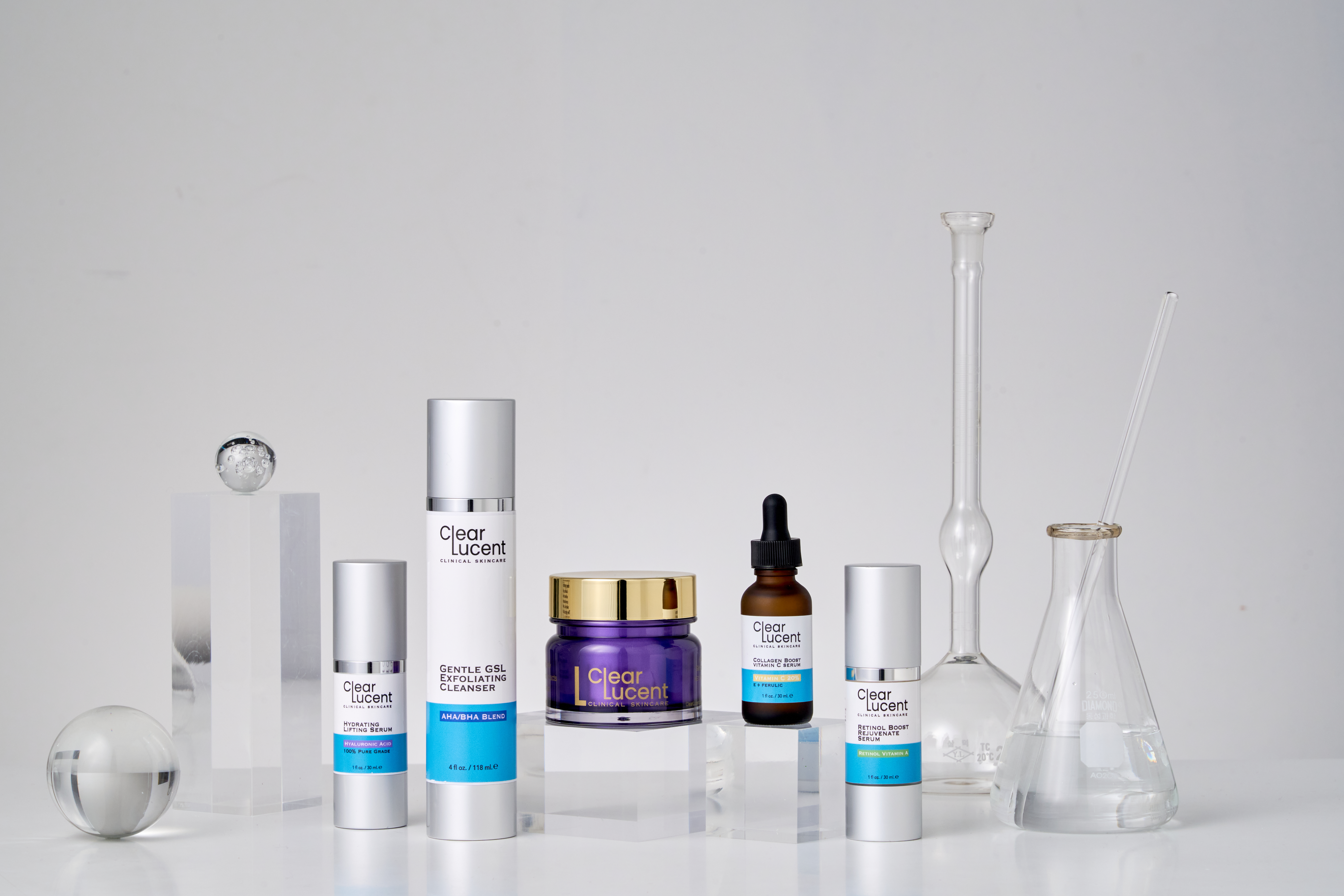
The Rise of Clean Beauty: What It Means for Your Skin
Clean beauty, synonymous with non-toxic beauty, is a skincare and cosmetic movement centered on safe, transparent products. With a market value of 6.5 billion U.S. dollars in 2021 and an estimated growth to 15.3 billion U.S. dollars by 2028, clean beauty is not just a trend but a significant industry shift. Understanding the principles and benefits of clean beauty is crucial as consumers increasingly prioritize health-conscious choices for their skin.
Understanding Clean Beauty
Definition and Principles
Clean beauty is a term that signifies the formulation of skincare and cosmetic products without harmful chemicals. What qualifies as clean beauty? Clean beauty products are those mindfully created without toxic ingredients, sourced ethically, and beneficial for skin health. The core principles of clean beauty revolve around safety, transparency in labeling, and effectiveness in promoting skin well-being.
Historical Context
The origins of the clean beauty movement can be traced back to the increasing awareness among consumers about the potential risks associated with traditional beauty products. Over the years, this movement has evolved into a significant industry shift towards safer and more sustainable practices in skincare and cosmetics. Embracing both natural and man-made ingredients, clean beauty continues to prioritize safety without compromising on efficacy.
Industry Trends
In the realm of clean beauty, current trends emphasize the importance of sustainability, ethical sourcing, and consumer education. Manufacturers are increasingly focusing on local production to reduce costs while providing high-quality products to consumers. Looking ahead, future predictions suggest a continued growth in demand for clean beauty products as more individuals seek safe, non-toxic alternatives for their skincare routines.
Importance of Clean Beauty
Health Benefits
Avoiding harmful chemicals is a primary advantage of clean beauty products. These items are formulated without toxic ingredients like parabens, phthalates, and sulfates. They prioritize safety and transparency in labeling, ensuring that consumers can make informed choices about what they apply to their skin. Additionally, clean beauty products offer benefits for sensitive skin by being non-toxic and gentle, reducing the risk of irritation or adverse reactions.
Environmental Impact
Sustainable sourcing is a key aspect of clean beauty that sets it apart from conventional products. Clean beauty brands are committed to eco-friendly practices, ensuring that their ingredients are ethically and sustainably sourced. By opting for clean beauty options, consumers contribute to reducing negative environmental impacts caused by traditional beauty production processes. Moreover, the emphasis on eco-friendly packaging further minimizes waste and promotes sustainability in the industry.
Ethical Considerations
Cruelty-free practices are a significant ethical consideration within the realm of clean beauty. Brands that adhere to clean beauty standards do not test their products on animals, aligning with cruelty-free principles that prioritize animal welfare. Furthermore, fair trade ingredients play a crucial role in supporting communities and ensuring that workers receive fair compensation for their contributions to the beauty industry. By choosing clean beauty products with fair trade ingredients, consumers actively participate in promoting ethical practices within the skincare and cosmetics sector.
Ingredients to Avoid

Common Harmful Ingredients
Parabens
Parabens, commonly found in cosmetics, are a group of synthetic compounds used as preservatives. These chemicals can mimic estrogen in the body, potentially disrupting the endocrine system and leading to various health concerns.
Sulfates
Sulfates are cleansing agents often added to beauty products like shampoos and cleansers. Despite their effective cleaning properties, sulfates can strip the skin of its natural oils, causing dryness and irritation for individuals with sensitive skin.
Phthalates
Phthalates are plasticizing chemicals utilized in many fragranced cosmetics. These compounds have been linked to hormonal disruptions and reproductive issues, highlighting the importance of avoiding products containing phthalates.
How to Read Labels
Understanding Ingredient Lists
Interpreting ingredient lists is crucial for identifying harmful components in beauty products. Consumers should look out for common toxic ingredients like parabens, sulfates, and phthalates and opt for clean beauty alternatives that promote skin health without compromising safety.
Certifications to Look For
Certifications play a vital role in ensuring the authenticity of clean beauty products. Labels such as "Cruelty-Free," "Organic," or "Non-Toxic" indicate that the product meets specific standards regarding ingredients and production processes. By choosing certified clean beauty items, consumers can make informed decisions that align with their health and ethical values.
Benefits of Clean Beauty
Personal Benefits
Improved skin health: Choosing clean beauty products can lead to improved skin health by avoiding harmful chemicals that may cause irritation or long-term damage. These products are formulated with wholesome, nourishing ingredients that work effectively to enhance the overall well-being of your skin.
Peace of mind: By opting for clean beauty options, individuals can experience peace of mind knowing that they are using skincare and cosmetic items free from toxic substances. The transparency in labeling and the commitment to safe ingredients offer reassurance and confidence in the products being applied to the skin.
Societal Benefits
Supporting ethical brands: Embracing clean beauty means supporting brands that prioritize ethical practices, sustainability, and consumer well-being. By choosing clean beauty products, consumers contribute to a positive shift in the industry towards more responsible production methods and transparent sourcing.
Promoting sustainability: Clean beauty promotes sustainability by encouraging eco-friendly practices, sustainable ingredient sourcing, and minimal environmental impact. Consumers who opt for clean beauty items actively participate in promoting a greener future for skincare and cosmetics industries.
Clean beauty focuses on using natural, sustainable, and better quality ingredients to hold brands accountable for avoiding dangerous and toxic elements.
Choosing clean beauty promotes overall well-being by selecting products believed to be safer for personal health and the environment.
Clean beauty products are defined by being mindfully created without any proven or suspected toxic ingredients, ethically sourced, and made with the health of customers and the environment in mind. Clean beauty products offer numerous benefits for the skin and are associated with natural, green, and other types of beauty that deviate from the norm.
Using clean beauty products ensures that harmful chemicals, toxins, or carcinogens are not directly absorbed into the body, reducing the risk of skin allergies, hormonal imbalances, and other health issues.
Clean beauty products protect the skin by avoiding harmful chemicals and toxins that can negatively impact health.
Natural ingredients in clean beauty products offer multiple benefits for the skin, promoting hydration, nourishment, and protection against environmental aggressors. Clean beauty products harness the power of natural ingredients sourced from plants, minerals, and organic sources to provide hydration, nourishment, and protection against environmental aggressors.
Clean beauty products are formulated without harmful chemicals and ingredients like parabens, phthalates, sulfates, synthetic colors, and fragrances making them better for the skin and more effective.
Choosing clean beauty products can help prevent acne outbreaks caused by harmful ingredients present in traditional skincare products.
Manufacturers in the clean beauty industry adopt strategies like local manufacturing to reduce costs and provide enormous benefits to consumers. Local manufacturing in the clean beauty industry benefits clients and contributes to the growth of the sector.

